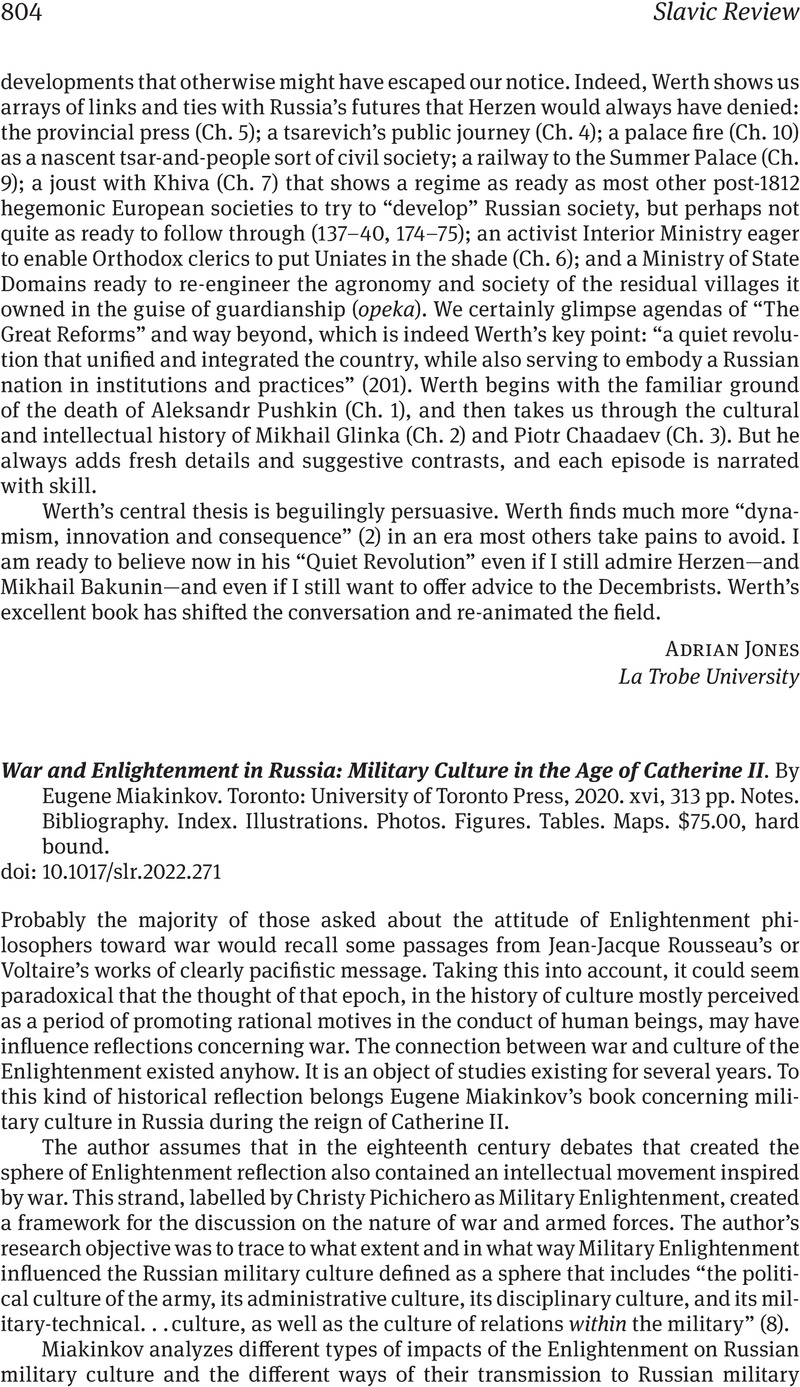No CrossRef data available.
Article contents
War and Enlightenment in Russia: Military Culture in the Age of Catherine II. By Eugene Miakinkov. Toronto: University of Toronto Press, 2020. xvi, 313 pp. Notes. Bibliography. Index. Illustrations. Photos. Figures. Tables. Maps. $75.00, hard bound.
Review products
War and Enlightenment in Russia: Military Culture in the Age of Catherine II. By Eugene Miakinkov. Toronto: University of Toronto Press, 2020. xvi, 313 pp. Notes. Bibliography. Index. Illustrations. Photos. Figures. Tables. Maps. $75.00, hard bound.
Published online by Cambridge University Press: 07 February 2023
Abstract
An abstract is not available for this content so a preview has been provided. Please use the Get access link above for information on how to access this content.

- Type
- Book Review
- Information
- Copyright
- Copyright © The Author(s), 2023. Published by Cambridge University Press on behalf of the Association for Slavic, East European, and Eurasian Studies


